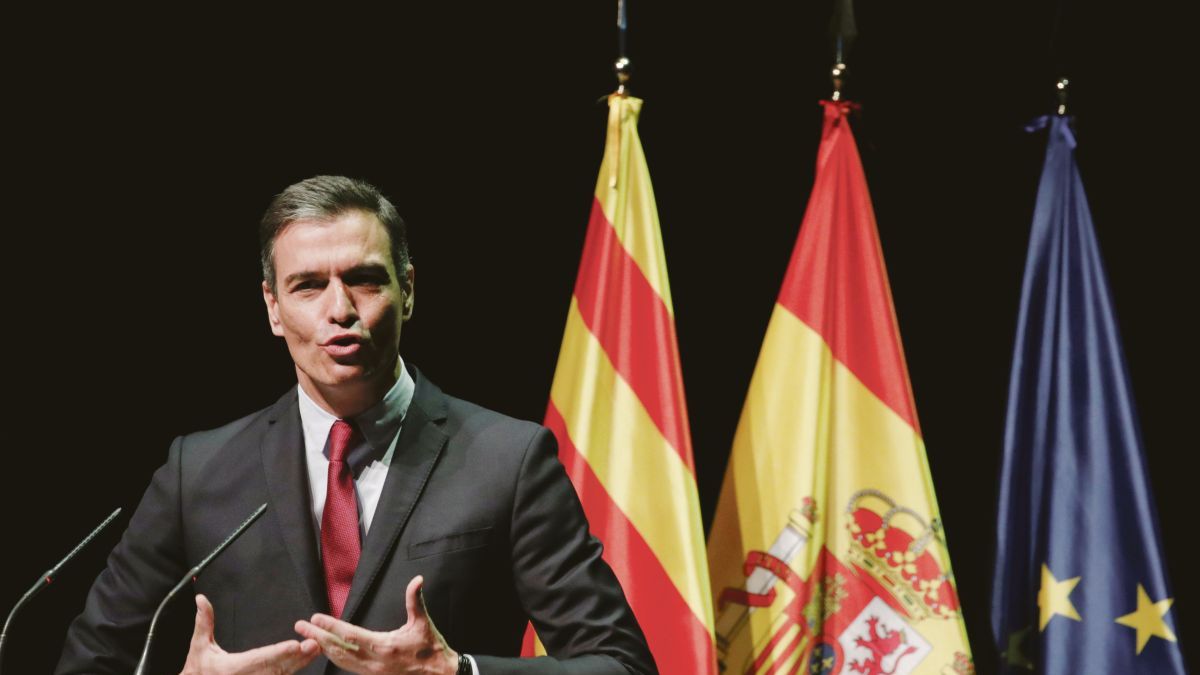The project presented by the government of Pedro Sanchez foresees allocate six out of every ten euros of the national budget to social policies, in total 240,375 million euros, which rises to 248,391 million with European funds.
After several weeks of intense negotiations in which the lines raised by socialism (PSOE) and United we can, the Executive managed to illuminate the second budgets of the legislature after unlocking the pact to impose a minimum effective rate on corporate tax of 15% for large companies and approve the first State Housing Law.
The measure, however, will affect less than 1% of companies, the largest.
The public accounts project consists of the largest public expenditure in the history of Spain and with a record investment thanks to the injection of European funds: the accounts collect more than 27,000 million euros of aid disbursed by the European Union to heal the wounds of the crisis unleashed by the pandemic.
The accounts are drawn up on a record spending ceiling of 196,000 million euros, which is just 45 million more than the figure registered a year earlier, which already represented the highest increase.
The accounts for 2022 include a significant increase in social spending, such as the rental voucher and the cultural voucher for young people.
Montero called them “fair recovery budgets” and affirmed that they will contribute to building a “more competitive and sustainable” country, as well as to “economic recovery reaching all families.”
He also remarked that the new accounts in Spain are “absolutely aligned with the demands” of the partners of the European Union.
These are the second public accounts agreed by the PSOE and United We Can, this time with a special focus on the group of young people.
A total of 12.55 billion euros will go to youth, double that in 2020, which includes direct aid of 250 euros per month to facilitate access to housing and emancipation and a bonus of 400 euros at age 18 to spend in culture.
Another large part of the social spending announced will go to the payment of pensions, with an increase of 4.8% to 171,165 million euros.
Montero explained that the Government will increase the amount of minimum and non-contributory pensions by 3% during 2022, which more than 10 million people receive.
It will also allow a 2% increase in the salary of civil servants.
The 2022 General Budgets for Spain are framed in a context of economic recovery after the coronavirus pandemic, since the government’s forecast is that the economy will grow around 7% in this period and an increase in employment of 2.7%, which will reduce the unemployment rate to 14.1%, according to the macroeconomic table presented on September 21.
These conditions are coupled with an expected growth in domestic demand and employment, according to Montero, which will translate into an improvement in social collection of up to 8.1%, according to the Executive’s estimates.
With this spending ceiling, the public deficit will be reduced to 5% of the Gross Domestic Product (GDP), compared to the 8.4% forecast for this year.
“It is not about returning to the conditions before the pandemic, but about moving forward and being better than before,” he stressed.
The government’s goal is for the accounts to be approved in January after passing the corresponding vote in parliament.
The budget agreement between the partners of the Government excluded the extension of maternity and paternity leave to six months, one of the main claims of Podemos.
“In a negotiation, everyone gives in a bit and this is an issue that is difficult for us to convince the PSOE,” acknowledged the Secretary General of United Podemos and Minister of Social Rights and Agenda 2030, Ione Belarra, reported the newspaper El País. .
David William is a talented author who has made a name for himself in the world of writing. He is a professional author who writes on a wide range of topics, from general interest to opinion news. David is currently working as a writer at 24 hours worlds where he brings his unique perspective and in-depth research to his articles, making them both informative and engaging.




